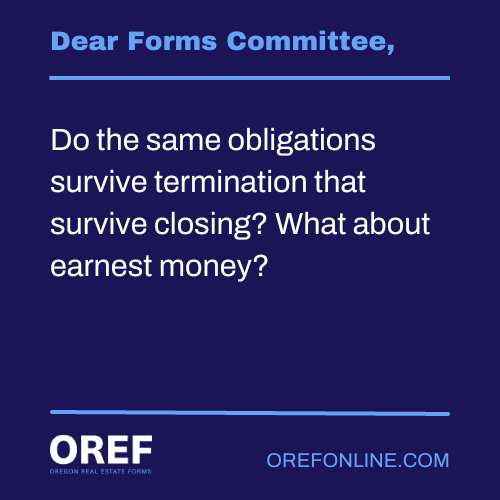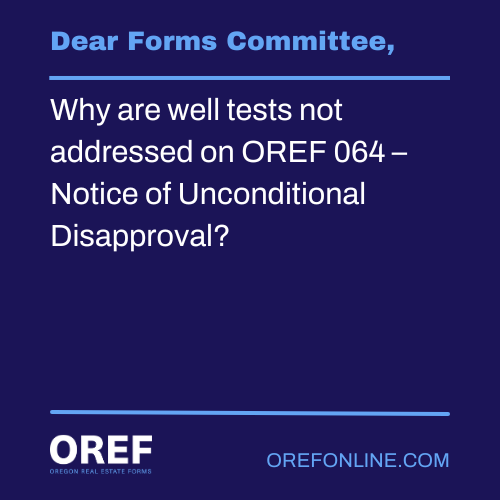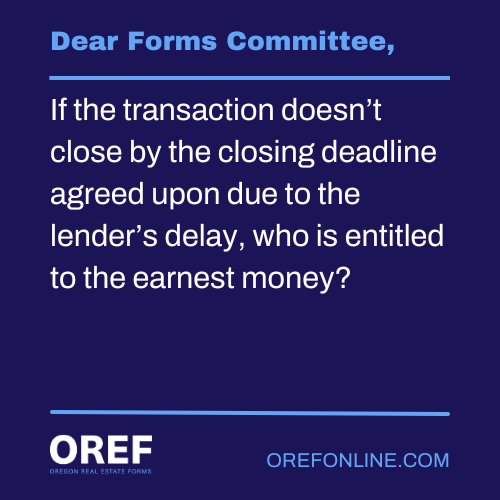Dear Forms Committee: Do the same obligations survive termination that survive closing? What about earnest money?
No, the list of things that survive termination differs from those that survive closing. In the previous blog post on survival, we pointed out that one of the two types of obligations that survive closing includes those “…which, by their terms, can reasonably be expected to continue beyond closing.” That’s the essential issue.
For example, although the obligation to vacate the property survives closing, it does not survive termination because it would not make sense to require the seller to leave when the seller is going to remain the owner. On the other hand, the buyer’s obligation to restore the property following inspections or tests performed by the buyer does survive termination because the buyer should not be able to get out of an obligation just because they didn’t promptly comply with it.
What about earnest money? Section 28 of the OREF 001 Residential Sale Agreement clarifies by agreement which party receives the earnest money and that agreement continues after contract termination. That’s why subscribers should always use OREF 057 Termination Agreement when terminating. By having two parts, OREF 057 points out that the parties must clarify their agreements on both the termination and disbursement of earnest money; each must decide before the relationship between the parties is ended. If the parties agree on the termination but not the disbursement of earnest money, the parties can terminate the agreement and sue for the earnest money.
All comments and responses from OREF or its staff, managers, and volunteers are non-legal opinions made for general purposes. Each Forms subscriber must rely solely upon their Principal broker or personal legal counsel for specific advice and instruction. You and your client should independently confirm that the Form(s) you use are legally suitable for the purposes intended and that they are current with respect to all laws and regulations.




